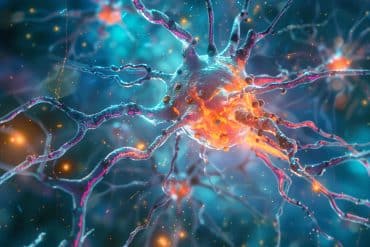Summary: Boosting omega-3 fatty acid intake helps to preserve brain health and improve cognition in middle age, a new study reports. For those with the Alzheimer’s associated APOE4 gene, omega-3 fatty acid intake was associated with greater hippocampal volume and less small vessel disease.
Source: UT San Antonio
Eating cold-water fish and other sources of omega-3 fatty acids may preserve brain health and enhance cognition in middle age, new evidence indicates.
Having at least some omega-3s in red blood cells was associated with better brain structure and cognitive function among healthy study volunteers in their 40s and 50s, according to research published online Oct. 5 in Neurology.
Faculty of The University of Texas Health Science Center at San Antonio (UT Health San Antonio) and other investigators of the Framingham Heart Study conducted the analysis.
“Studies have looked at this association in older populations. The new contribution here is that, even at younger ages, if you have a diet that includes some omega-3 fatty acids, you are already protecting your brain for most of the indicators of brain aging that we see at middle age,” said Claudia Satizabal, PhD, assistant professor of population health sciences with the Glenn Biggs Institute for Alzheimer’s and Neurodegenerative Diseases at UT Health San Antonio. Satizabal is the lead author of the study.
Volunteers’ average age was 46. The team looked at the relation of red blood cell omega-3 fatty acid concentrations with MRI and cognitive markers of brain aging. Researchers also studied the effect of omega-3 red blood cell concentrations in volunteers who carried APOE4, a genetic variation linked to higher risk of Alzheimer’s disease.
The study of 2,183 dementia- and stroke-free participants found that:
- Higher omega-3 index was associated with larger hippocampal volumes. The hippocampus, a structure in the brain, plays a major role in learning and memory.
- Consuming more omega-3s was associated with better abstract reasoning, or the ability to understand complex concepts using logical thinking.
- APOE4 carriers with a higher omega-3 index had less small-vessel disease. The APOE4 gene is associated with cardiovascular disease and vascular dementia.
Researchers used a technique called gas chromatography to measure docosahexaenoic acid (DHA) and eicosapentaenoic acid (EPA) concentrations from red blood cells. The omega-3 index was calculated as DHA plus EPA.
“Omega-3 fatty acids such as EPA and DHA are key micronutrients that enhance and protect the brain,” said study coauthor Debora Melo van Lent, PhD, postdoctoral research fellow at the Biggs Institute. “Our study is one of the first to observe this effect in a younger population. More studies in this age group are needed.”

The team divided participants into those who had very little omega-3 red blood cell concentration and those who had at least a little and more.
“We saw the worst outcomes in the people who had the lowest consumption of omega-3s,” Satizabal said. “So, that is something interesting. Although the more omega-3 the more benefits for the brain, you just need to eat some to see benefits.”
Researchers don’t know how DHA and EPA protect the brain. One theory is that, because those fatty acids are needed in the membrane of neurons, when they are replaced with other types of fatty acids, that’s when neurons (nerve cells) become unstable. Another explanation may have to deal with the anti-inflammatory properties of DHA and EPA.
“It’s complex. We don’t understand everything yet, but we show that, somehow, if you increase your consumption of omega-3s even by a little bit, you are protecting your brain,” Satizabal said.
It’s encouraging that DHA and EPA also protected APOE4 carriers’ brain health. “It’s genetics, so you can’t change it,” Melo van Lent said, referring to the vulnerability of this risk group.
“So, if there is a modifiable risk factor that can outweigh genetic predisposition, that’s a big gain.”
About this diet and cognition research news
Author: Will Sansom
Source: UT San Antonio
Contact: Will Sansom – UT San Antonio
Image: The image is in the public domain
Original Research: The findings will appear in Neurology







